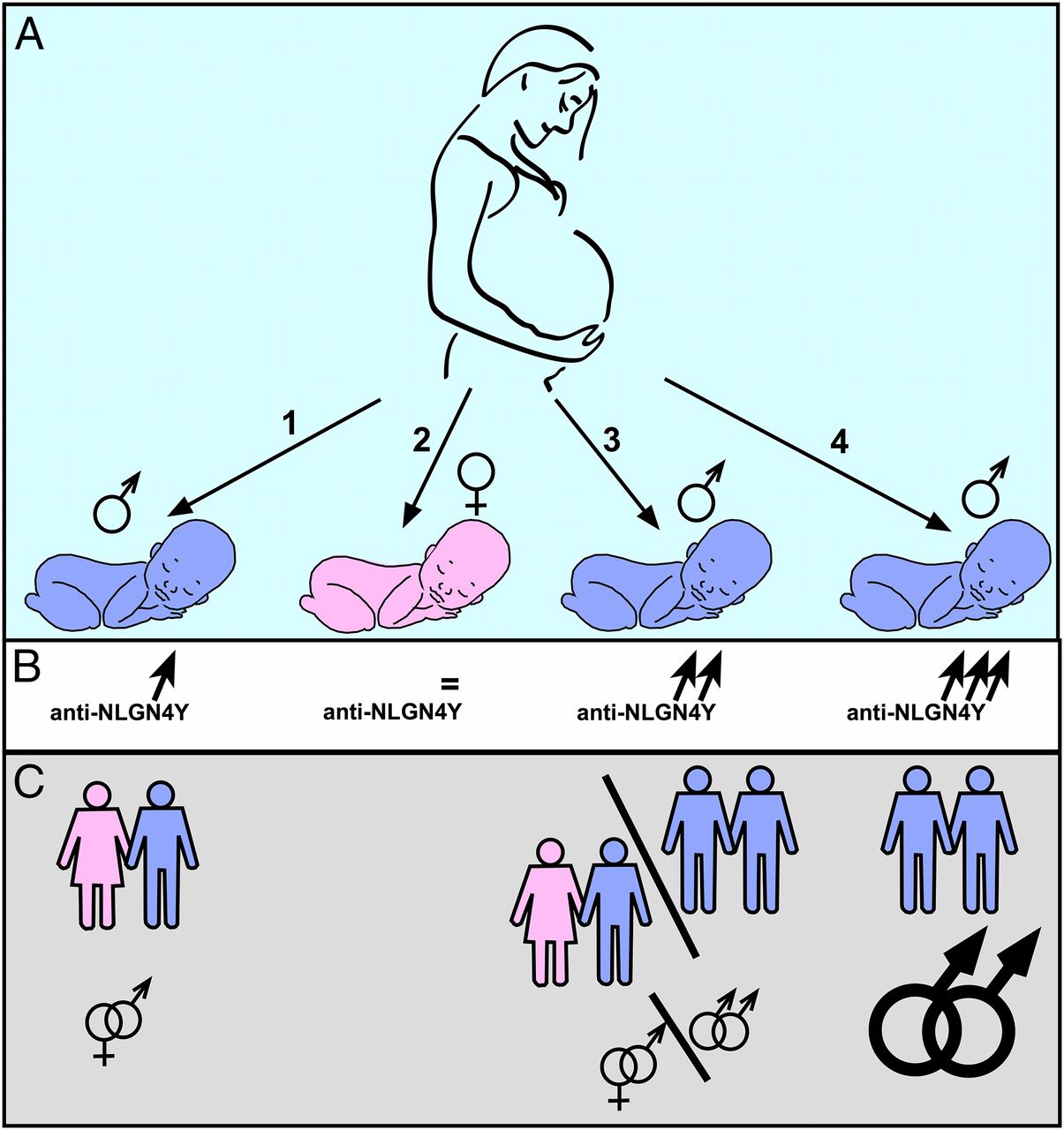Study: Those who have older brothers become lesbian or gay more often

This is a study that is likely to cause a stir not only within the community. According to the studies of an Australian research team, people who grow up with older siblings become gay or lesbian more often. The basis for this finding was a survey with a total of nine million participants.
The "Fraternal Birth Order Effect
The finding that it is mainly people with older siblings who become gay or lesbian even has a name. Researchers speak in this context of the "Fraternal Birth Order Effect". This can already look back on a long history. Because: science has been dealing with this topic since the 1950s. '
Put simply, proponents of the theory assume that the "Fraternal Birth Order Effect" is based on a certain reaction of the pregnant mother's body. When pregnant with the first child, a defense reaction to certain proteins would thus be induced. The antibodies thus created would remain in the mother's body and would influence the sexual orientation of the next child.
The theory is not without controversy
In the past, the theory surrounding the "Fraternal Birth Order Effect" has been the subject of heated debate. And even though the data collected in the current case is based on information from more than nine million people, the discussions are unlikely to cease in the future.
By way of explanation, the term "gay" or "lesbian" was used to refer to people living in a registered same-sex partnership or marriage.
According to the researchers, it showed that the likelihood of being gay or lesbian (based on the Definitive above) increases if there is a big brother in the family.
In numbers: Men who themselves held the position of "little brother" were about 12 percent more likely to be gay than men who were either the big brother themselves or an only child or had an older sister. According to the study, however, the effect can also be potentiated above. This is because the more older brothers there were, the more the probability that the youngest brother was gay increased.
Among other things, there is also research that shows that a corresponding effect can also be recorded for lesbian women who have older brothers.
There is criticism of the results or studies....
However, this does not refer to the nature of the study, but rather to the fact that now and then it appears that a reason is being sought for a person to be gay or lesbian. For some people, corresponding studies are therefore associated with a kind of "justification" that - of course - is simply not needed.
They fear that the impression could spread within society that "it's nothis or her fault that he or she is gay" and that the whole thing is seen as some kind of unavoidable burden.
The fact that no one consciously decides to be queer or cis completely fades into the background here. Accordingly, it is clear that - with a neutral view - this is certainly an interesting study, but that it would simply not have been necessary in the eyes of many people, since there is no need for a "reason" to stand by oneself or to accept others as they are.
Finally the time has come, Queer Eye Germany starts in March